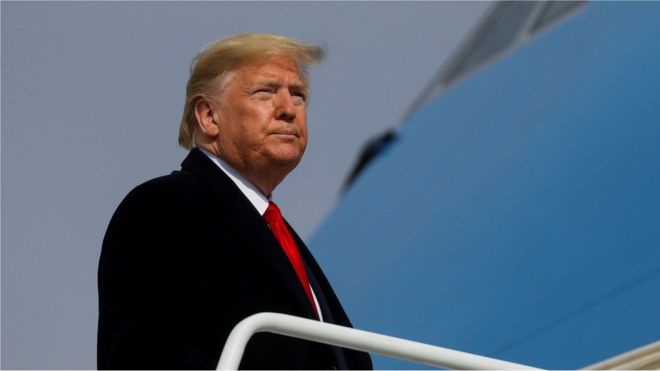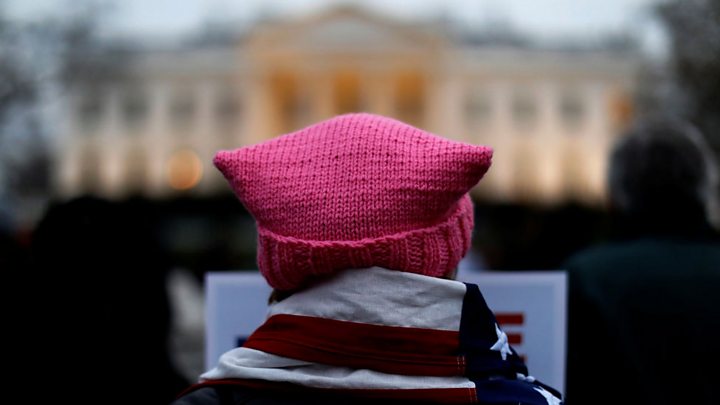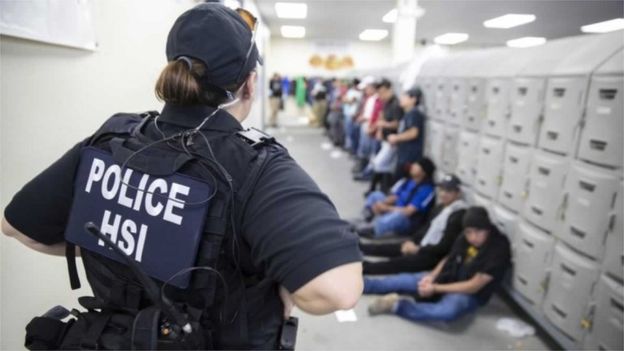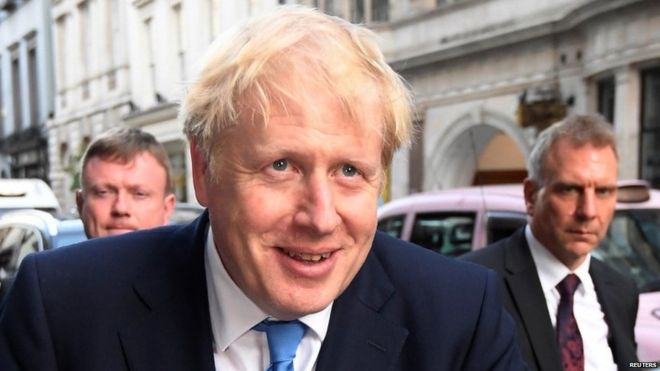US travel ban: Trump puts restrictions on six more countries

The US has announced it is expanding its curbs on immigration to include six more countries.
People from Nigeria, Eritrea, Sudan, Tanzania, Kyrgyzstan and Myanmar will now be blocked from obtaining certain types of visas.
People from those countries will still be able to visit the US.
An official said the new measures were the result of failures by the six countries to meet US security and information-sharing standards.
“These countries, for the most part, want to be helpful but for a variety of different reasons simply failed to meet those minimum requirements that we laid out,” acting Homeland Security Secretary Chad Wolf told reporters on Friday.
He said officials would work with the countries on bolstering their security requirements to help them get off the list.
US President Donald Trump first introduced a travel ban in 2017. It currently closes US borders to citizens from seven countries, most with Muslim majorities.
What are the new rules?
The US said it would suspend the issuance of visas that can lead to permanent residency for nationals of Nigeria, Eritrea, Kyrgyzstan, and Myanmar.
Sudanese and Tanzanian nationals will no longer be allowed to apply for “diversity visas”, which are available by lottery for applicants from countries with low rates of immigration to the US.
Mr Wolf said non-immigrant visas given to people for temporary stays – including visitors, those doing business or people seeking medical treatment – would not be impacted by the new rules.
Of the new nationalities facing visa restrictions, Nigerians account for the most immigration to the US.
The US State Department issued about 7,900 immigrant visas to Nigerians in fiscal year 2018, which began in October 2017.
Three of the countries facing restrictions – Kyrgyzstan, Nigeria and Sudan – have majority Muslim populations, while Eritrea and Tanzania have sizable Muslim minorities.
What is the travel ban?
Mr Trump signed a controversial travel ban just seven days after taking office in January 2017, arguing it was vital to protect Americans.
The ban initially excluded people from seven majority-Muslim countries but the list was modified following a series of court challenges.
It now restricts citizens of Iran, Libya, Somalia, Syria, Yemen, Venezuela and North Korea.
While the government has suspended most immigrant and non-immigrant visas to applicants from those countries, exceptions are available for students and those with “significant contacts” in the US.






